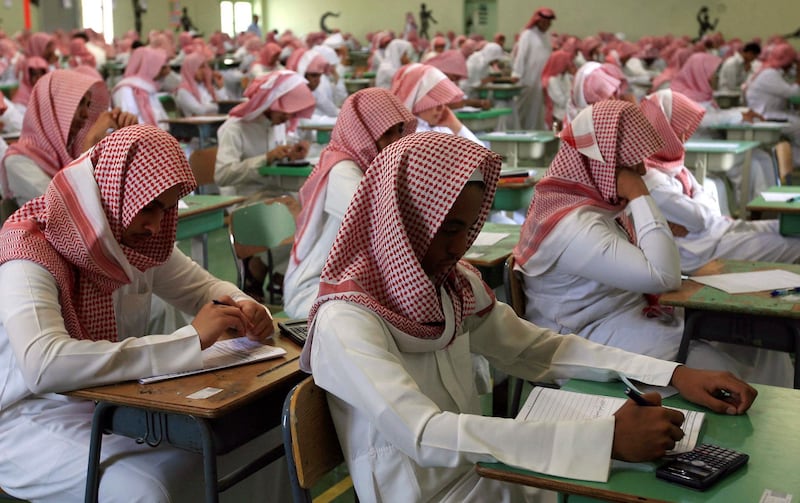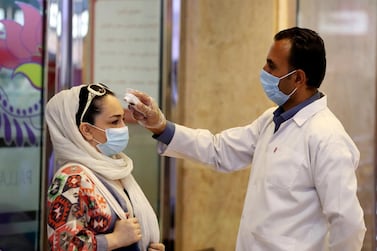Pupils in Saudi Arabian government schools will be educated via distance learning for the first seven weeks of the new school year, the country’s minister of education said on Saturday, as a precaution against the spread of Covid-19.
During that time, the situation for the remainder of the academic year will be evaluated, Dr Hamad bin Mohammed Al Shaikh said in remarks carried on state-run Al Ekhbariya TV.
Theory-based curriculums at universities and technical schools will be online, while practical subjects will be taught in person, he said.
Elementary schools (Grade 1 to Grade 6) will start at 3pm to allow working parents to facilitate their children's classes, while high school and junior high schools will start their days at 7am local time, the Ministry of Education said on Twitter.
Those who can't access the online system will travel to their school at least once a week to follow up on their tasks and studies, according to the ministry.
Teachers will work remotely, while the school principal, student advisers, and other staff will work from the schools.
Saudi Arabia has reported about 300,000 cases of the coronavirus.
The kingdom plans to conduct a clinical trial of a Covid-19 vaccine developed by China’s CanSino Biologics on at least 5,000 volunteers, the health ministry said last week.
It will be conducted in Riyadh, Makkah and Dammam, with one group of participants receiving a low dose of the vaccine and the other a placebo, the ministry said.
The vaccine produced an immune response in earlier trials in China.
The head of the World Health Organisation praised precautionary measures taken by Saudi Arabia during this year’s Hajj, which happened last month.
“I’d like to congratulate the kingdom of Saudi Arabia for the steps it has put in place to make the Hajj as safe as possible this year,” Tedros Adhanom Ghebreyesus, the WHO’s director general, said in Geneva.
“This is a powerful demonstration of the kinds of measures that countries can and must take to adapt to the new normal.”
The Saudi assistant minister of health said no coronavirus cases were recorded among the worshippers.
The scaled-back pilgrimage was attended by about 1,000 people, compared with the usual two million.
Instead of praying shoulder to shoulder in large crowds, pilgrims practised social distancing and were not permitted to move in groups of more than 20.







